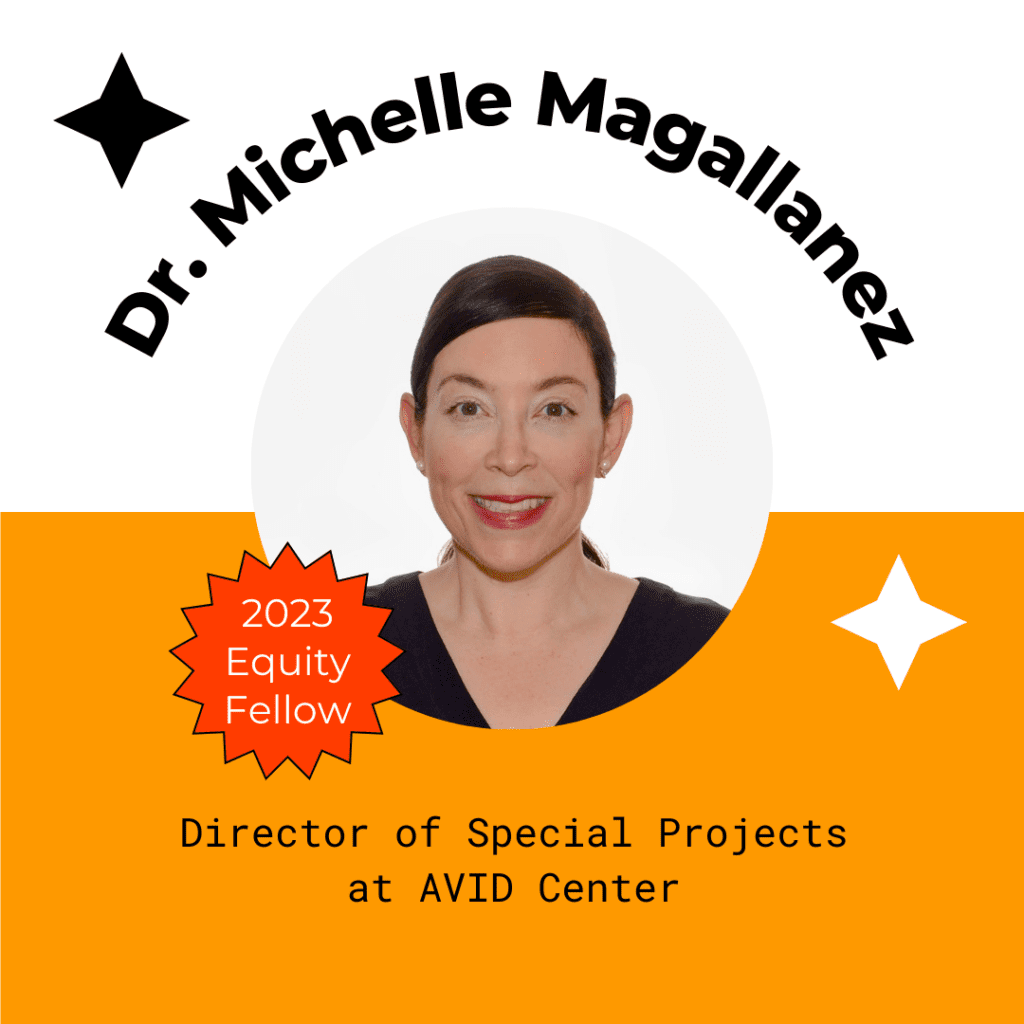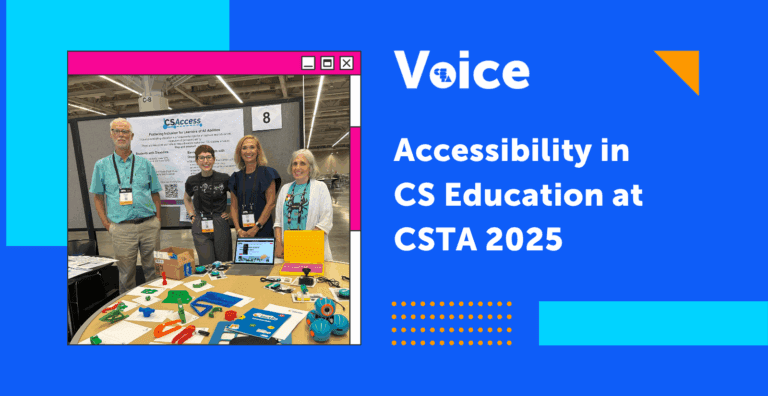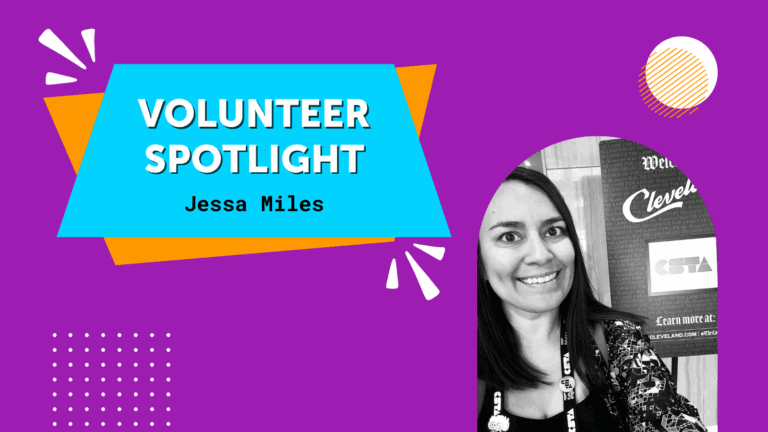Posted by CSTA on May 18, 2023

Michelle works to bring computer science skills to every student, not just the ones who happen to attend schools with CS pathways. To achieve this, teachers must integrate computational thinking and computing skills into core content areas.
Full Story
Dr. Michelle Magallanez is the director of special projects at AVID Center, a national educational nonprofit that aims to close the opportunity gap for all students by helping them build the skills they need to be future ready. A proud Mexican American with her PhD in French medieval literature from New York University, she’s an award-winning educational technology interaction designer and a recovering math-phobe.
In her winding journey to a computer science–related career, Michelle has managed product development at LeapFrog and led a studio at Allen Interactions, where she advised Fortune 500 companies. With over twenty years of experience in product and program development, Michelle currently leads AVID’s innovation incubator, designing professional learning and curricular resources for K–12 teachers who are new to computer science and STEM. Her mission is to build resources that help teachers incorporate computational thinking, computer science, and STEM problem-solving as foundational learning skills across content areas.
Michelle works to bring computer science skills to every student, not just the ones who happen to attend schools with CS pathways. To achieve this, teachers must integrate computational thinking and computing skills into core content areas. Michelle’s team at AVID creates professional development, curricular resources, and student programming, all built on a framework of diversity, equity, and inclusion. Sponsored by Amazon Future Engineer, her team developed the Computer Science for Content Area Teachers Communities of Practice, which work with elementary and secondary teachers to provide training on how to introduce computational thinking and analytical problem-solving across all content areas. The educators who have attended these trainings touch over two million students, the majority of whom come from low-income households.

Michelle and her team aim to close opportunity gaps for students from underrepresented demographics through partnerships and product development to expand student access to CS education. To this end, they’ve developed resources and student programming to bring CS into K–12 classrooms in collaboration with Wonder Workshop and Micro:bit; formed regional partnerships with Code.org and the Microsoft TEALS program to build sustainable CS pathways; and, through AVID’s open educational resources platform, AVID Open Access, curated CS and STEM resources that can be used by teachers new to the field.
Michelle is particularly proud of AVID’s STEM Connections program, which supplies turnkey lessons in core content areas, aligned with national education standards, to introduce students to CS concepts and mindsets. “We recognize the importance of opportunity knowledge for students,” she says, “so that they can imagine themselves in the shoes of future problem-solvers.” To this end, each lesson includes a section on Career Connections, highlighting a diverse array of role models who have used the skills learned in that lesson in their own CS and STEM careers.
In her own school days, Michelle often felt alienated from STEM subjects. She says, “I can describe for you in detail the day in third grade that launched my math anxiety—the surroundings, the feelings, the confusion, the sense of inadequacy.” Unable to access STEM and CS pathways at her school, she began her career in the humanities before eventually transitioning to educational technology. She’s determined to make it easier for the next generation of students, particularly girls and other student populations who have historically been shut out from computer science, to find their path and their voice within STEM.
Michelle hopes to use her time as a CSTA Equity Fellow to make that change a reality. She says, “I would love to learn from [my cohort] to grow my behind-the-scenes passion for building equitable CS solutions into loud and proud advocacy that demystifies assumptions about CS to build both teacher and student confidence.” An introvert by nature, she’s excited to challenge herself to shape and share her own story, along with the stories of other underrepresented CS professionals, “to create a shared, empathic narrative to shift mindsets and build momentum to make CS accessible to all students.”
At AVID, Michelle leads the AVID Open Access platform as well as AVID’s podcast series, Unpacking Education (formerly known as Tech Talk for Teachers). AOA has had over 600,000 visitors since its launch in May 2020, while the podcast averages 800 to 1000 listeners per day. Michelle hopes to use those platforms to showcase the amazing work being done by her cohort of CSTA Equity Fellows. She says that she aims “to uplift the work they do every day to ensure equitable access and achievement in CS.”
Although Michelle isn’t a computer science educator herself, she’s passionate about spreading computer science awareness to all disciplines and content areas. She says, “I’m an ed tech professional who can share how computational thinking is applicable in all disciplines, driving innovation across the workforce; how systems thinking and data analysis can help unpack the most complex challenges; how CS is so much more than just coding.” A skilled collaborator, she’s eager to share her experiences, learn from the achievements of the other Equity Fellows, and collaborate on projects that will build a more just and inclusive future for computer science.
“I’ve always been more comfortable behind the scenes,” Michelle admits, “but my journey has taught me how important it is to share personal stories, to put a face to diverse career opportunities for students.”



